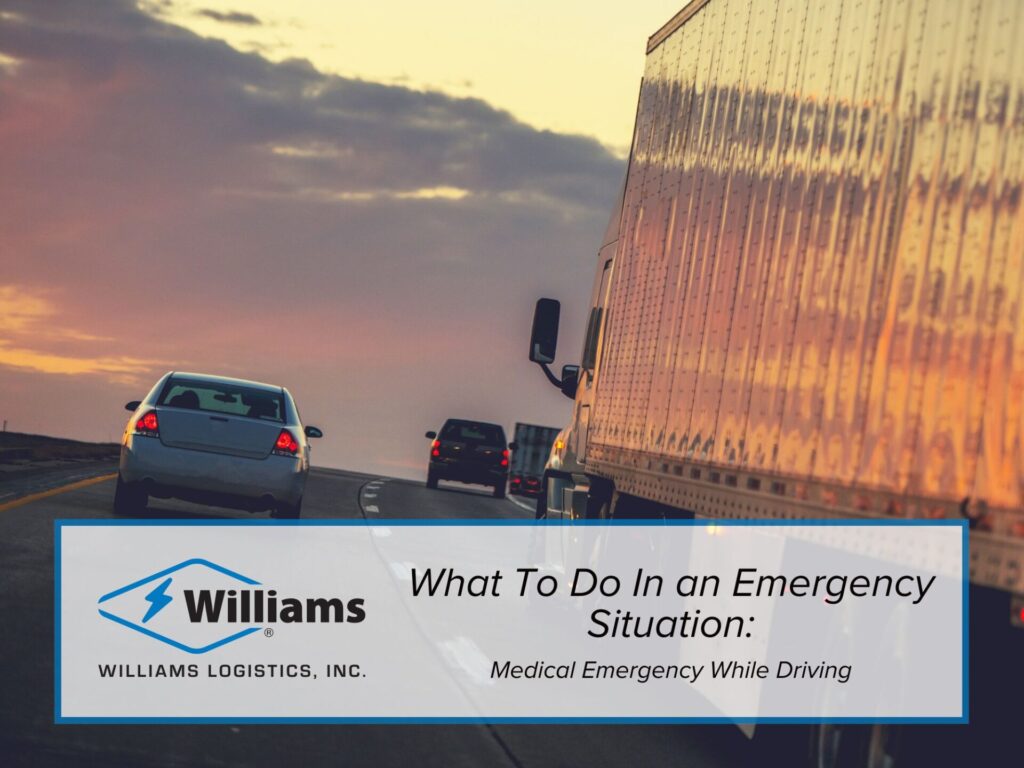Being a truck driver comes with its own set of challenges and responsibilities, one of which is knowing how to handle a medical emergency while on the road. Dealing with a sudden illness or injury during a long haul can be a terrifying experience, but being prepared and knowing how to react can a huge difference in the outcome. In this blog, we'll discuss what to do in the event of a medical emergency while driving, as well as the legal implications of speeding for a medical emergency.
What To Do In an Emergency Situation
First and foremost, if you start feeling unwell while behind the wheel, it's important to pull over to a safe location as quickly as possible. This could be a rest stop, a gas station, or the shoulder of the road. Avoid stopping in the middle of traffic if at all possible, as this can put you and other motorists in danger. Once you have safely stopped, assess your condition and call for help if needed. If you are experiencing severe symptoms such as chest pain, difficulty breathing, or loss of consciousness, don't hesitate to call 911 immediately.
Be Prepared for the Unexpected
It's also important to have a plan in place for medical emergencies before hitting the road. Make sure your cell phone is fully charged and that you have emergency contact information readily available. Consider carrying a first aid kit in your truck, as well as any necessary medications or medical supplies. Knowing the location of nearby hospitals or urgent care facilities along your route can also be helpful in case of an emergency.
Sudden Medical Emergency Defense
In some cases, a medical emergency while driving may require you to exceed the speed limit in order to get to a hospital or other medical facility as quickly as possible. This is known as the "sudden medical emergency defense" and is a legal concept that can be used in court to argue that the driver was justified in breaking the law in order to respond to a medical emergency. However, it's important to note that this defense is not always successful and can vary depending on the circumstances of the case.
Can You Speed for a Medical Emergency?
While the sudden medical emergency defense may provide some legal protection in certain situations, it's still important to exercise caution when driving in an emergency situation. Speeding or driving recklessly can increase the risk of causing an accident, which can lead to serious injuries or even fatalities. It's always best to prioritize safety and follow the rules of the road, even in the face of a medical emergency.
Ways to Prevent a Medical Emergency While Driving
In addition to knowing how to respond to a medical emergency while driving, it's also important to take steps to prevent them from happening in the first place. Maintaining a healthy lifestyle, getting regular check-ups, and managing any chronic health conditions can all help reduce the risk of medical emergencies on the road. Following safety guidelines such as wearing your seatbelt, avoiding distractions, and getting enough rest can also help keep you safe while driving.
Ultimately, being prepared and knowing how to respond to a medical emergency while driving can help ensure a positive outcome in a stressful situation. Remember to pull over to a safe location, assess your condition, and call for help if needed. Follow the rules of the road, even in emergency situations, and prioritize safety at all times. By taking these steps, you can minimize the risk of accidents and keep yourself and others safe while on the road.
